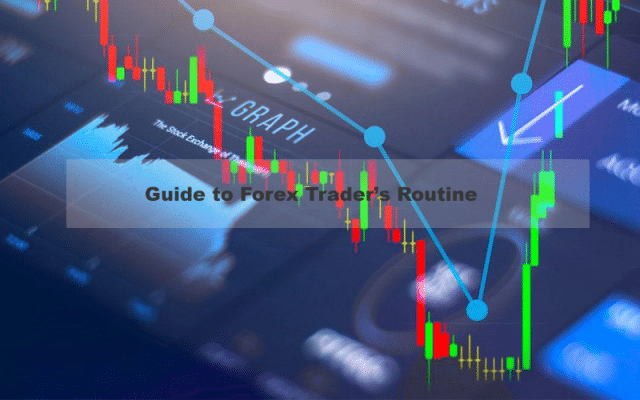The one thing that differentiates professional traders from amateurs is how they approach daily trading. Professionals follow routines that help them find profitable trades while amateurs depend purely on luck, stumbling from one bad trade to the next.
In this article, we take a look at the reasons why you as a forex trader must have a trading routine as well as some important factors that could constitute what your trading routine looks like.
Forex Routine Works for anyone

A routine is any sequence of actions that one follows regularly. It is performed as a part of a regular procedure but it isn’t simply done for its own sake. Rather, it helps to prepare the groundwork upon which important work can be done.
Mistakes tend to occur because of information overload, which often leads to panic and frustration. They also take place during quiet or boring times when traders let their guard down. These mistakes, such as pressing the wrong button or entering the wrong position size, then occur randomly and can be avoided.
Following a routine in everyday life has various benefits.
These include, but are not limited to:
- Better time management
- More efficiency
- Provides structure to life
- Breaks bad habits
- Helps one prioritize
- Reduces procrastination
Traders, like everyone else, require routines for maximum success and efficiency. A trade routine that forces you to take a few minutes to go through a pre-trade checklist can minimize the errors that you make in your trade day. Routines don’t have to take up a lot of time but can keep you from getting frustrated or losing money.
Forex routine and how to stick to it
Every trader’s routine is going to be slightly different depending on their personality, the errors they are susceptible to making, and the market that they are trading. Here, we go through some of the most common factors that might constitute a trader’s routine.
Go through the economic calendar
Price spikes tend to go hand in hand with economic events of high impact, which, in turn, creates slippage on trades. A prudent trader would avoid being in such trades for the first few minutes that surround these news events. That is why it is important to go through your economic calendar before you enter into trades and take note of the times when high impact news comes out.
Trade with the right account
There are many trading platforms that allow traders to have multiple accounts. Before you start trading, it is important to ensure that you are trading with the right account. This point becomes even more important if you also have a simulated account, in addition to your live accounts. You wouldn’t want to end your trading day only to find out that the profitable trades you made were made only with simulated capital.
Double and triple check automated strategies
Even if you’re a manual trader, you may still have a few automated orders. For instance, you may automate your stop-loss orders once you enter a position. It would be wise to double-check that the orders and targets are set as you want them. If you’re using a script or a ‘robot,’ ensure that its settings are accurate before you start.
Default position size
Take extra pains to ensure that your default position size is set appropriately. Adding even a single extra digit to it can have catastrophic effects on your trade and dropping one could lead to a missed opportunity. If, on the other hand, you adjust your position size manually, do take notice of your account balance before you trade.
Whatever your forex routine looks like, it should help you accomplish the following tasks:
- Review open positions and make required adjustments
- Review your previous trades
- Get updated with the market
- Identify how the upcoming news could lead to volatility
- Stay ready to trade before the trading session opens

At first, sticking to these routines may seem like work. That is why it is important to ensure that these are not too hard to follow or do not take too much time. If you fail at doing them at first, do not beat yourself over it.
Stick to them for long-term success that they will provide you. If you truly love trading, you shouldn’t find it too taxing. Over time, the routine will end up becoming a habit and you won’t have to dispense too much conscious thought to it.
Forex profit killers habits
Bad habits in forex trading are the killers of productivity and performance. Perhaps the worst habit that one could have is to trade without a plan. This is what most novices are guilty of and make up the number one reason for their initial failure. Spending time to research the market and preparing a blueprint for one’s success is important to fix this habit.
Overtrading is yet another bad habit that can easily wipe out your trading account. Traders often jump too fast into making trades and always want to be in a trade. This is a symptom not just of a bad habit but of an unrealistic mindset. Instead of chasing after the ultimate profitable trade, it is better to understand that success stories are made out of daily hard work and good habit formation.
Conclusion
Creating a trading routine may sound like a lot of work at first. But, reflect on what your present trading system is like and where it has led you. What differentiates professional traders from novices are good trading routines and habits. And, those who do not follow set trading routines are never going to reach the level of professionalism that they desire.
A trading routine will provide the guidance and consistency that is required to spot profitable trades, steer clear of unprofitable ones, and eliminate errors.




